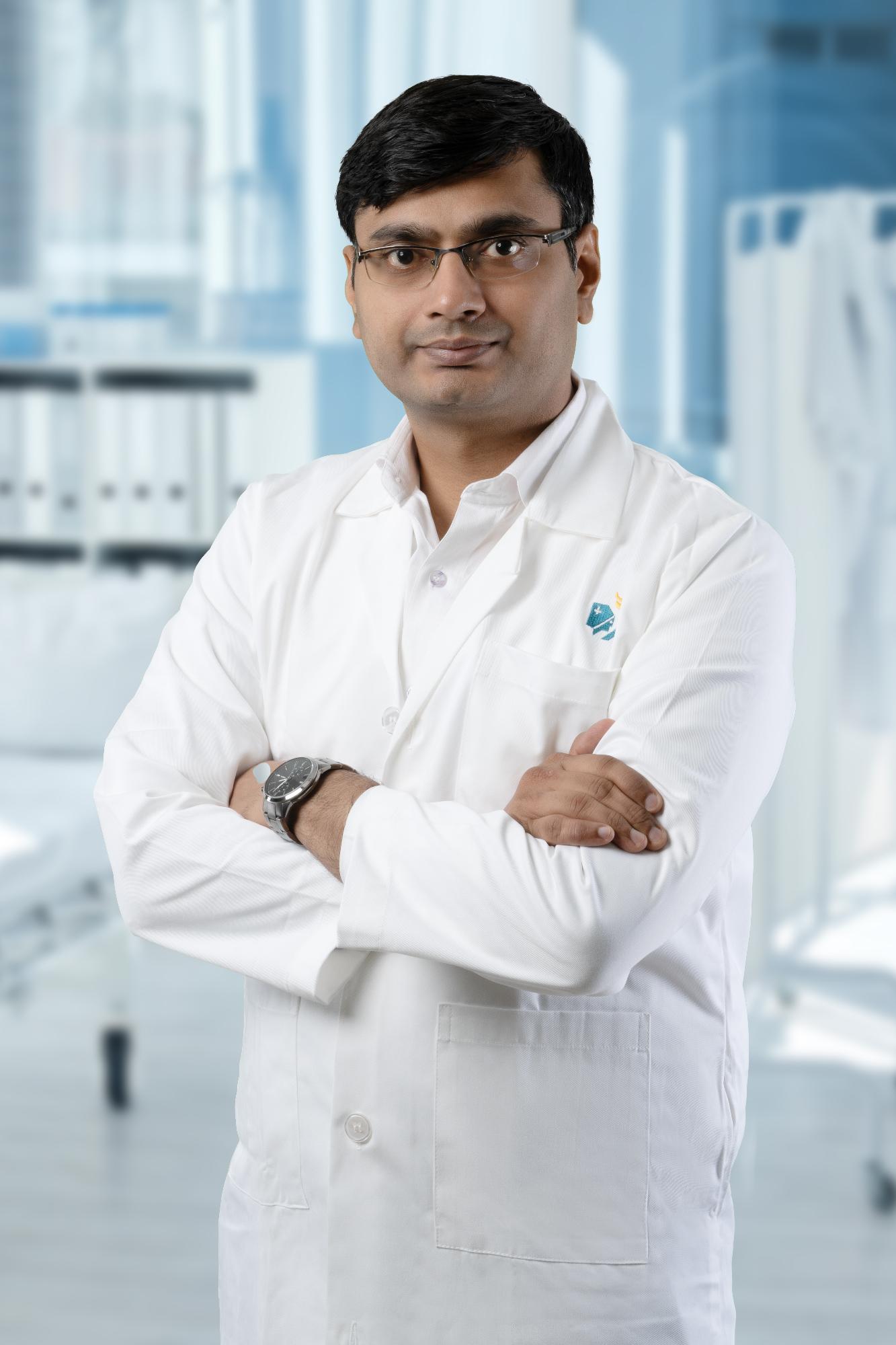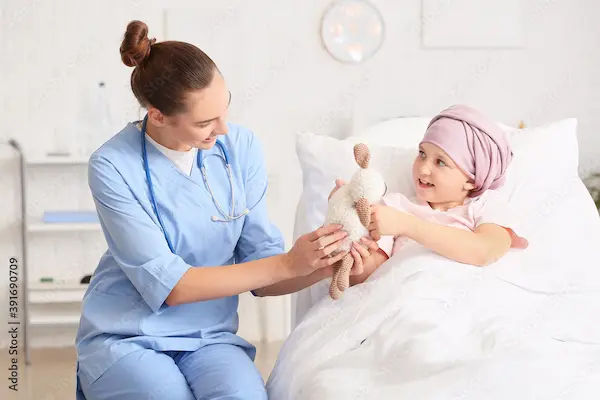Understanding Chemotherapy: Prevention and Side Effects
Know about chemotherapy, what it is, primary goals, can you prevent, side-effects, prevention and management of long-term and short-term side effects and more.

Written by Dr. Dhankecha Mayank Dineshbhai
Reviewed by Dr. Md Yusuf Shareef MBBS
Last updated on 13th Jan, 2026

Introduction
Navigating a cancer diagnosis is an overwhelming experience, and the word "chemotherapy" often brings a mix of hope and anxiety. While it is a powerful weapon against cancer, it's also surrounded by many questions and concerns. This guide is designed to demystify chemotherapy, moving beyond the fear to provide a clear, compassionate, and practical understanding of what it entails. We will explore the fundamental goals of chemotherapy, how it works within the body, and the critical strategies for preventing and managing its well-known side effects.
What is Chemotherapy? The Basics Explained
Chemotherapy ("chemo") refers to the use of powerful drugs to destroy cancer cells in the body. Unlike localised treatments like surgery or radiation that target a specific tumour, most chemotherapy is systemic. These drugs work by targeting rapidly dividing cells, a hallmark characteristic of cancer. However, because this action isn't perfectly selective, it also affects other healthy cells that multiply quickly, which is the root cause of most side effects of chemotherapy.
Consult an Oncologist for Personalised Advice
The Primary Goals of Chemo Treatment
Oncologists prescribe chemotherapy with different intents, and understanding the goal can provide crucial context for the treatment journey.
- Curative: The primary goal is to eliminate all cancer cells from the body and achieve a permanent cure.
- Adjuvant: Given after a primary treatment (like surgery) to kill any remaining microscopic cancer cells and reduce the risk of cancer recurrence.
- Neoadjuvant: Administered before surgery or radiation to shrink a large tumour, making it easier to remove.
- Palliative: When a cure isn't possible, chemo is used to shrink tumours, alleviate symptoms, and improve quality of life.
Can You Prevent the Need for Chemotherapy?
The question of how to avoid chemotherapy is a common one. The decision to use chemo is based on a complex analysis of the cancer's type, stage, grade, and genetic markers, as well as the patient's overall health.
While you cannot directly "prevent" the need for chemo if it's medically necessary, advancements in precision medicine are helping to create more tailored treatment plans. For example, genomic testing of a tumour can sometimes reveal that a patient has a very low risk of recurrence, meaning they can safely avoid chemotherapy and its associated toxicities. Ultimately, the best approach is to consult an oncologist about the specific benefits and risks in your unique situation.
A Deep Dive into Common Chemotherapy Side Effects
Because chemo affects healthy cells, a range of side effects can occur. It's vital to remember that not everyone experiences all side effects, and their severity varies greatly. Common issues include:
- Fatigue: This is the most frequently reported side effect, often described as a profound and persistent sense of exhaustion.
- Nausea and Vomiting: Thanks to modern anti-nausea medication, this is now much better controlled than in the past.
- Hair Loss (Alopecia): Not all chemo drugs cause this, but it remains a well-known and emotionally challenging effect.
- Myelosuppression (Low Blood Counts): This can lead to anaemia (fatigue), neutropenia (increased infection risk), and thrombocytopenia (easy bruising/bleeding).
- Mouth Sores (Mucositis): Sores can develop in the mouth and along the digestive tract.
Chemo Brain: A term for mild cognitive changes like memory lapses or trouble concentrating.
Proactive Prevention and Management of Side Effects
A proactive approach is your best defense against the challenges of chemo. Here’s a breakdown of strategies for managing chemotherapy side effects:
Working with Your Medical Team
- Your oncology team is your greatest ally. They will prescribe pre-medication to prevent nausea before it starts. They will also monitor your blood counts closely and may administer growth factor injections to boost white blood cell production and prevent infections during chemotherapy.
Nutritional Strategies and Hydration
Diet during chemo is critical. Working with an oncology dietitian can help you navigate appetite changes and maintain strength.
- For Nausea: Eat small, bland, easy-to-digest meals (e.g., toast, crackers, broth). Ginger tea or candies can be helpful.
- For Mouth Sores: Choose soft, moist foods and avoid spicy, acidic, or rough textures.
General Tips: Prioritise protein for cell repair and stay hydrated with water, broth, and electrolyte drinks.
Lifestyle and Supportive Measures
It includes:
- Fatigue Management: Balance light activity, like short walks, with planned rest periods. Listen to your body.
- Skin and Nail Care: Use gentle, fragrance-free moisturisers. Your nails may become brittle or discoloured.
- Emotional and Mental Health: Seek support from therapists, support groups, or social workers specialising in oncology. Managing anxiety about chemo is a crucial part of care.
Long-Term and Late Side Effects of Chemo
Some side effects can persist after treatment ends or appear months or years later. Long-term effects of cancer treatment require ongoing monitoring. These can include:
- Cognitive Changes: "Chemo brain" can sometimes linger.
- Peripheral Neuropathy: Numbness, tingling, or pain in the hands and feet.
- Heart Problems: Certain drugs can affect heart function.
- Fertility Issues: Chemo can impact fertility in both men and women. Discuss fertility preservation options before starting chemotherapy with your doctor.
- Risk of Secondary Cancers: In rare cases, chemo can increase the risk of developing a different cancer later in life. Your care team will discuss this based on the specific drugs used.
Conclusion: Empowerment Through Knowledge
Understanding chemotherapy, its prevention strategies, and side effects transforms it from a frightening unknown into a manageable part of a cancer journey. Remember, a strong support system and open communication with your oncologists, nurses, and dietitians are invaluable. This journey requires immense strength, and by focusing on what you can control, you can navigate treatment with greater confidence and resilience.
Consult an Oncologist for Personalised Advice
Consult an Oncologist for Personalised Advice

Dr.sanchayan Mandal
Medical Oncologist
17 Years • MBBS, DrNB( MEDICAL ONCOLOGY), DNB (RADIOTHERAPY),ECMO. PDCR. ASCO
Kolkata
Dr. Sanchayan Mandal Oncology Clinic, Kolkata

Dr Gowshikk Rajkumar
Oncologist
10 Years • MBBS, DMRT, DNB in Radiation oncology
Bengaluru
Apollo Clinic, JP nagar, Bengaluru

Dr. Sanchayan Mandal
Medical Oncologist
17 Years • MBBS, DrNB( MEDICAL ONCOLOGY), DNB (RADIOTHERAPY),ECMO. PDCR. ASCO
Kolkata
MCR SUPER SPECIALITY POLY CLINIC & PATHOLOGY, Kolkata
Dr. B Shravanthi Reddy
Radiation Specialist Oncologist
8 Years • MBBS, DNB(Radiation Oncology)
Manikonda Jagir
Apollo Clinic, Manikonda, Manikonda Jagir

Dr. Amit Kumar Jain
Medical Oncologist
7 Years • MBBS, MD, Dr. NB (Medical Oncology)
Bengaluru
Apollo Clinic, Indiranagar, Bengaluru
Consult an Oncologist for Personalised Advice

Dr.sanchayan Mandal
Medical Oncologist
17 Years • MBBS, DrNB( MEDICAL ONCOLOGY), DNB (RADIOTHERAPY),ECMO. PDCR. ASCO
Kolkata
Dr. Sanchayan Mandal Oncology Clinic, Kolkata

Dr Gowshikk Rajkumar
Oncologist
10 Years • MBBS, DMRT, DNB in Radiation oncology
Bengaluru
Apollo Clinic, JP nagar, Bengaluru

Dr. Sanchayan Mandal
Medical Oncologist
17 Years • MBBS, DrNB( MEDICAL ONCOLOGY), DNB (RADIOTHERAPY),ECMO. PDCR. ASCO
Kolkata
MCR SUPER SPECIALITY POLY CLINIC & PATHOLOGY, Kolkata
Dr. B Shravanthi Reddy
Radiation Specialist Oncologist
8 Years • MBBS, DNB(Radiation Oncology)
Manikonda Jagir
Apollo Clinic, Manikonda, Manikonda Jagir

Dr. Amit Kumar Jain
Medical Oncologist
7 Years • MBBS, MD, Dr. NB (Medical Oncology)
Bengaluru
Apollo Clinic, Indiranagar, Bengaluru
